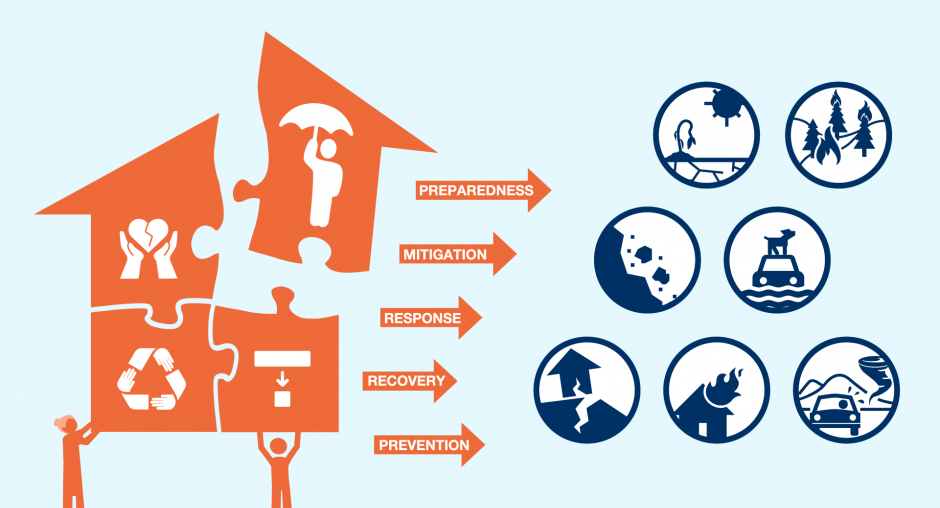Disaster Risk Reduction
Mandate
The 1975 Helsinki Final Act recognized the importance of co-operation on disaster risk reduction. This was followed by several OSCE political commitments that referred to disaster preparedness and management in the OSCE context, including the 2003 OSCE Strategy Document for the Economic and Environmental Dimension , and the 2007 Madrid Declaration on Environment and Security. The 2014 Basel Ministerial Council Decision on Enhancing Disaster Risk Reduction is the cornerstone of OSCE activities in this field.
- MC Decision No 6/14 on Enhancing Disaster Risk Reduction
- MC Decision No 6/13 on Protection of Energy Networks from Natural and Man-made Disasters
- MC Decision No 3/11 on Elements of the Conflict Cycle, Related to Enhancing the OSCE’s Capabilities in Early Warning, Early Action, Dialogue Facilitation and Mediation Support, and Post-Conflict Rehabilitation
- 2007 Madrid Declaration on Environment and Security
- 2005 OSCE Ministerial Council - OSCE Border Security and Management Concept (MC 2/05)
- 2002 Porto Ministerial Declaration
- 1999 Istanbul Summit Document
- 1992 CSCE Helsinki Document
The role of the OSCE
The OSCE’s activities in disaster risk reduction are part of the international effort to secure a more sustainable future for all by contributing to the implementation of the 2030 Agenda for Sustainable Development and supporting participating States in the implementation of the Sendai Framework for Disaster Risk Reduction 2015–2030.
The OSCE enhances the capacities of national authorities and professionals in managing wildfire risks and in developing regional wildfire management frameworks in the South Caucasus, South-Eastern Europe and Eastern Europe, including in Chernobyl-affected areas shared by Belarus and Ukraine. Similarly, the OSCE focused policy development and improving wildfire management capacities of Armenia, Azerbaijan and Georgia through regional fire management training, workshops and roundtables. The OSCE also supported the establishment of a Regional Fire Management Resource Centre in Mongolia to assist disaster management efforts in the country and the Central Asian region.
In Eastern Europe, the OSCE facilitates transboundary water co-operation and helps strengthen the capacity of national authorities and practitioners on flood risk reduction. In South-Eastern Europe, the OSCE, with the support of Aarhus Centres, has contributed to strengthening cross-border co-operation among municipalities and communities at risk of floods.

